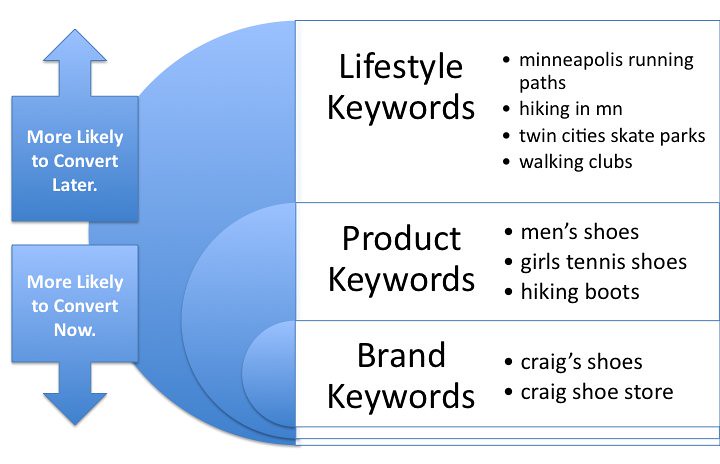Keywords are the essential words and phrases that search engines use to classify your webpages in search results. When you optimize a page for a particular keyword, you increase the chances of the page ranking high on sites such as Google when a user types in the word or phrase. By using the right keywords, you can create a site that’s informative and relevant for your industry. These efforts will bring more visitors to your website, visitors you can convert into buyers.
Find the Best Keywords for Your Business

Image via Flickr by Craig Key
When you’re selecting keywords for your content marketing, you need to consider two key factors:
• Relevance: How does the keyword directly relate to your products and services?
• Popularity: How many online searchers are looking for these terms?
You should never optimize your content for keywords that aren’t relevant. While trending news topics may have a huge number of online searches, you shouldn’t attempt to use them if they’re not directly related to your business. This approach won’t serve your audience well and could result in penalization from search engines such as Google.
When considering the popularity of certain keywords, you’ll need to use a search engine tool to check the rankings and statistics for relevant words or phrases. Avoid the temptation to try and rank for the most popular keywords. The internet is typically flooded with competitors for these popular phrases. Instead, look for midrange rankings. These items are topics that people are interested in learning about yet have very little published information for them to find.
Watch for Trending Topics
Keyword popularity changes all the time. Topics that were of little interest a few months ago may explode if they’re connected to a celebrity scandal or important news topic. Keep a keen eye out for trending topics that are relevant to your industry.
For example, if you sell home cleaning products, a dangerous health pandemic gives you the opportunity to publish informative pieces about the best cleaning methods to prevent the spread of infections. If you sell pet supplies, a particularly bad tick season provides a chance to create content about ways to protect your pets with flea and tick medications.
You have to act fast when you’re following trends. Have a writer on staff or find a freelancer who can provide a quick turnaround time. Trending topics can dissipate as quickly as they materialize. The sooner you can publish relevant content, the better your chance of boosting your sales.
Place Keywords Perfectly
Once you’ve selected your keywords, you need to place these keywords appropriately throughout your webpages. The page title, headings, subheadings, and body content are some of the more obvious places for your keywords. You should also include keywords in the following places:
• Title tag.
• Meta description tag.
• Link text.
• URL.
• Image alt tag.
Remember to use the keywords in a relevant manner. Don’t force keywords into the title if they’re not related to the topic on the page. Build your content around your keywords so that these phrases fit in naturally.
Proper keyword use will help you bring interested searchers to your website where you can begin marketing to them to land the sales.